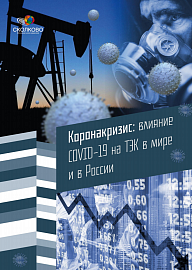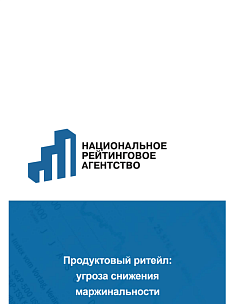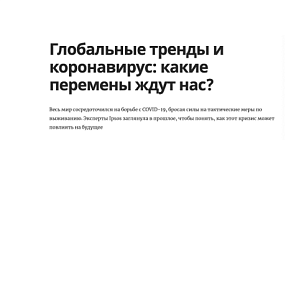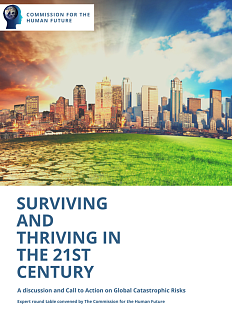A study by SKOLKOVO Moscow School of Management presents various aspects of the coronavirus impact on the fuel and energy sector (FES) industries, and formulates some prospects for the further FES development.
Roscongress Foundation analysts highlighted the main theses of this research, accompanying each of them with suitable fragments of video broadcasts of panel discussions held as part of business programs of the key events hosted by the Foundation.
For the fuel and energy sectors, the coronavirus is a shock that can lead to a serious change in energy markets.
The COVID-19 pandemic came as a shock to the global economy. The traditionally optimistic official IMF forecast, released in mid-April, for the first time in many decades in the baseline scenario predicts negative GDP growth for 2020.
In the fuel and energy sector, the coronavirus crisis strikes a triple blow:
· the direct impact of the coronavirus on workers in the fuel and energy sector and the sustainability of enterprises operation;
· the consequences of various restrictive measures against coronavirus, leading on the one hand to disruptions in supply chains and on the other to a sharp decline in economic activity and reduced demand for energy;
· tough price competition provoked by falling demand and, as a result, a sharp drop in prices.
In turn, the fuel and energy sector in Russia is rapidly retransmitting radical changes in foreign markets and a drop in export revenues into cuts in budget payments, investment programs and orders to related industries, which may lead to an additional 5-13% decline in the country’s GDP (in addition to the direct impact of coronavirus and restrictive measures to combat it) in 2020, depending on the scenario.
Video: https://roscongress.org/sessions/rh-2020-kvantovye-vyzovy-budushchego/search/#00:04:27.519
The fall in oil demand due to the spread of COVID-19 and the introduction of restrictive measures to overcome it, combined with a tough price war between producers, have led to devastating consequences for the oil markets.
According to the authors of the study, the deepest crisis in the entire history of the world oil industry is now unfolding. The main blow to the oil market was caused by an unprecedented drop in demand — by 30% in April and by almost 10% on average for the year (9.3 million barrels per day, according to IEA estimates). At the same time, the main drivers of world consumption — China and India — are unlikely to be able to meet the additional demand for oil in 2020.
Prospects for further demand dynamics are highly uncertain and will depend primarily on the duration of the pandemic and the quarantine restrictions associated with it. At the moment, estimates of the average annual demand for 2020 are in a very wide range — from 5 to 11.5 million barrels per day. The consensus forecast for a decline in oil demand for 2020 is now at the average level of 9 million barrels per day.
The gas industry has suffered less from the fall in demand than the oil industry. However, a number of factors can provoke a situation as difficult as in the oil sector.
Gas demand is declining mainly in industry and the commercial sector. In the electric power industry, its dynamics primarily depends on the specifics of national regulation and capacity structure. In general, we can talk about a 3-5% reduction in the average annual global demand for gas. In general, for the world it is likely to pass without such cataclysms as in the oil market. However, in the European gas market, a strong drop in demand in Q2 or Q3 against the background of a high underground gas storage facility (UGSF) filling may provoke a situation similar to the oil market.
In times of crisis, the electricity and heating sectors retain their positions, as their role in the citizens life support is indispensable. In this industry, changes are short-term and will not be as deep and sensitive as in the oil sector.
Electricity demand generally declines by 10-30%, reaching its lowest on the days of the most severe quarantine, and gradually recovering as it weakens. The demand for heat energy is much more sensitive to the weather than to the quarantine — no significant changes can be expected here.
The short-term priority of most energy companies now is to ensure financial stability in the face of falling revenue (for example, by reducing investment programs by 10-15%, according to the experience of European companies). And in the medium term, the power industry will face a reduction in investments.
The crisis caused by the coronavirus pandemic, along with the instability of the oil market, strengthens the competitive position of renewable energy sources in the market. Therefore, further recovery can go along the path of supporting the traditional sectors of the fuel and energy sector, and along the path of accelerating the energy transition.
There is a high probability that due to the coronavirus crisis influence, the trends of decarbonization, decentralization and digitalization will increase their impact and give an additional impetus to the energy transition. In addition, there are increasing calls from governments and international organizations for a low-carbon recovery path after the coronavirus crisis. And the instability of the oil market strengthens the competitive position of renewable power sources in the market, attracting more and more attention of investors.
Further recovery can follow the «Traditional Trajectory» or the «Accelerating Energy Transition» path. According the first scenario, the demand for hydrocarbons, driven by low oil prices in the coming years, will begin to recover quickly, and the markets will inevitably feel a colossal investment failure during the crisis years, which will lead to a new rise in oil and gas prices. In turn, rising prices for hydrocarbons will again spur interest in alternative energy sources and energy efficiency increase.
We also invite you to get acquainted with other materials, posted in StayHomeEconomy, Oil and Gas and Energy, special sections of the Roskongress Information and Analytical System on possible ways to stabilize the economy during pandemic, as well as the development of cross-industry energy sector.






